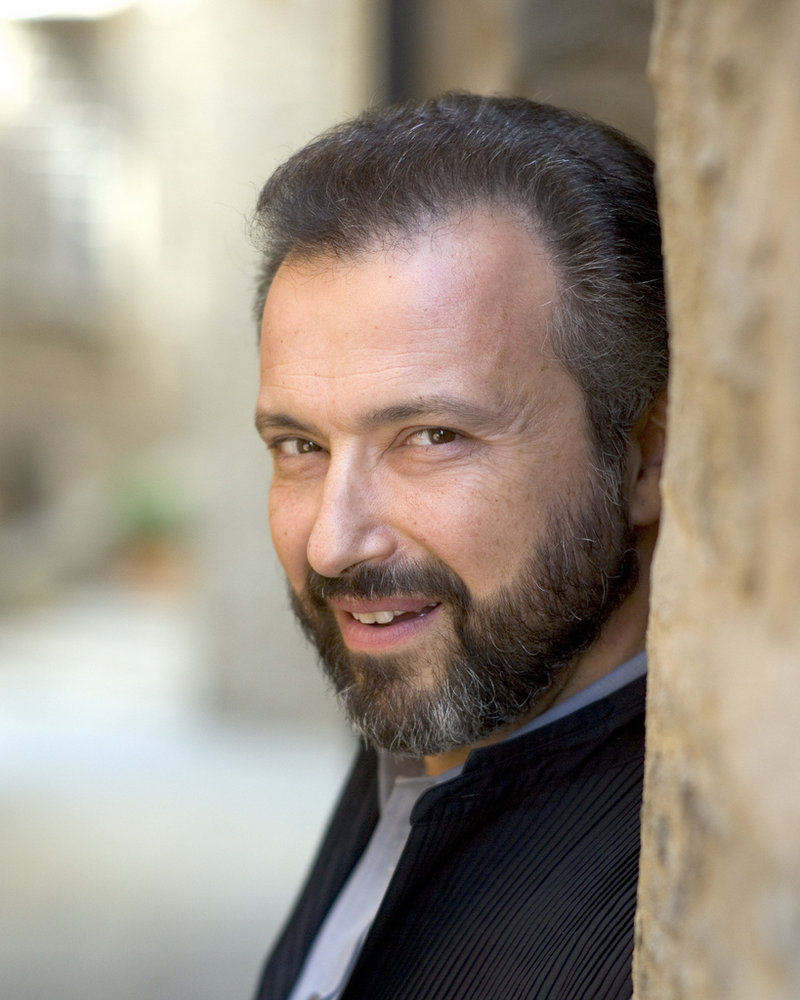Dmitry Sitkovetsky maintains homes in London and North Carolina. “I am bi-coastal, but bi-coastal in a different way. One coast is London, the other is the United States,” says the Russian-born conductor and violinist.
Sitkovetsky steps in for conductor Robert Moody when the Portland Symphony Orchestra presents a musical journey around the world at 2:30 p.m. Sunday at Merrill Auditorium. Sitkovetsky will lead the orchestra and perform as a soloist on John Corigliano’s lyrical Suite from “The Red Violin.”
The program also includes Giocchino Rossini’s Overture to “Barber of Seville” and Felix Mendelssohn’s Symphony No. 4 in A Major. The international flair is appropriate for Sitkovetsky, who left the Soviet Union in 1977 before it was permissible to emigrate.
His family enrolled him in the Moscow Conservatory as a young boy. He grew to be among the best violinists in the country, and at age 22, decided he wanted to leave the Soviet Union.
Applying for immigration was senseless.
“They would immediately kick you out of whatever college you were in, you would be drafted, and you could say goodbye to immigration and goodbye to your career,” Sitkovetsky said. “They would make sure you never played again.”
Instead, Sitkovetsky pretended to give up playing violin. He declared himself ill and checked into a hospital for evaluation. He was held for a month, then given a leave from the Moscow Conservatory.
For a year, he played in secret. Eventually, he convinced everyone he had given up music completely, and was granted permission to come to the United States.
Sitkovetsky arrived in the U.S. in 1977 and enrolled at the Juilliard School in New York City. He has since built a flourishing international career, leading orchestras in Berlin, New York, Los Angeles and London, and across all of Europe and Asia.
His family is in London, where he makes his primary home. He also works as music director of the Greensboro Symphony in North Carolina. His wife is from New York, but has lived in Europe 30 years. Their daughter was born in England.
There are three distinct accents in the household, and Sitkovetsky speaks “three and a half languages, or something like that. French I do understand, but do not speak it.”
He spends his life traveling, and describes his musical life as professional athletes might describe theirs.
“You must pace yourself well, and you must be strong psychologically,” he said. “You must be fit physically and you must have a very strong stomach, and you cannot be sick on the road. You must have your supply of vitamins and all kinds of supplements.
“It is the life of an athlete, except you move all the time. It’s a long sort of milestone.”
Whereas athletes can expect a relatively short career in competition, musicians must plan to play into old age. Sitkovetsky is 57, which puts him at about mid-career for a professional musician.
“There is a lot of time on the road, but that is where I am best. It’s harder for me to come home when I don’t work. It takes me longer to adjust to a non-working environment,” he said.
Sitkovetsky plans his life in six-month segments. This winter, he is preparing two dozen different musical programs that he will organize and perform through June. Some of those programs he will perform multiple times.
“You just have to prepare and be ready for different cultures, different languages, different climates, time zones and jet lags,” he said. “It all comes with the territory. It is the life we have chosen.”
Sitkovetsky takes none of it for granted, and dares not complain. He feels grateful that he has the opportunity to perform at all. He has returned to his native land many times — something he never imagined possible when he left.
“When I was leaving, I thought I would never see those people again. In those days, there was no chance of seeing them again,” he said. “But I have been back, and my story has a happy ending.”
Staff Writer Bob Keyes can be contacted at 791-6457 or:
bkeyes@pressherald.com
Twitter: pphbkeyes
Send questions/comments to the editors.



